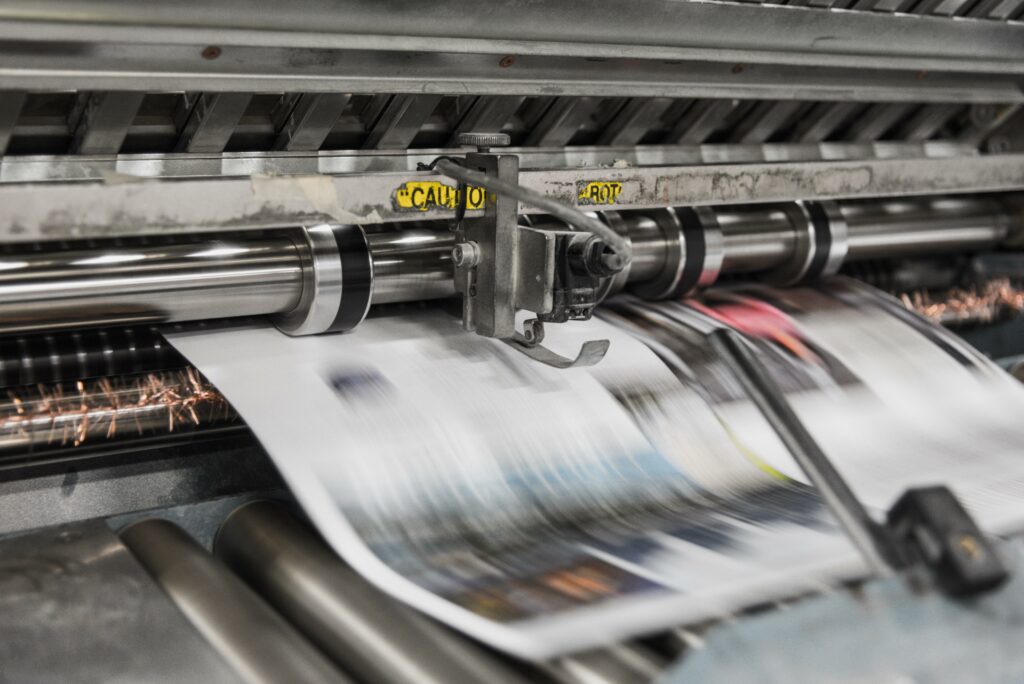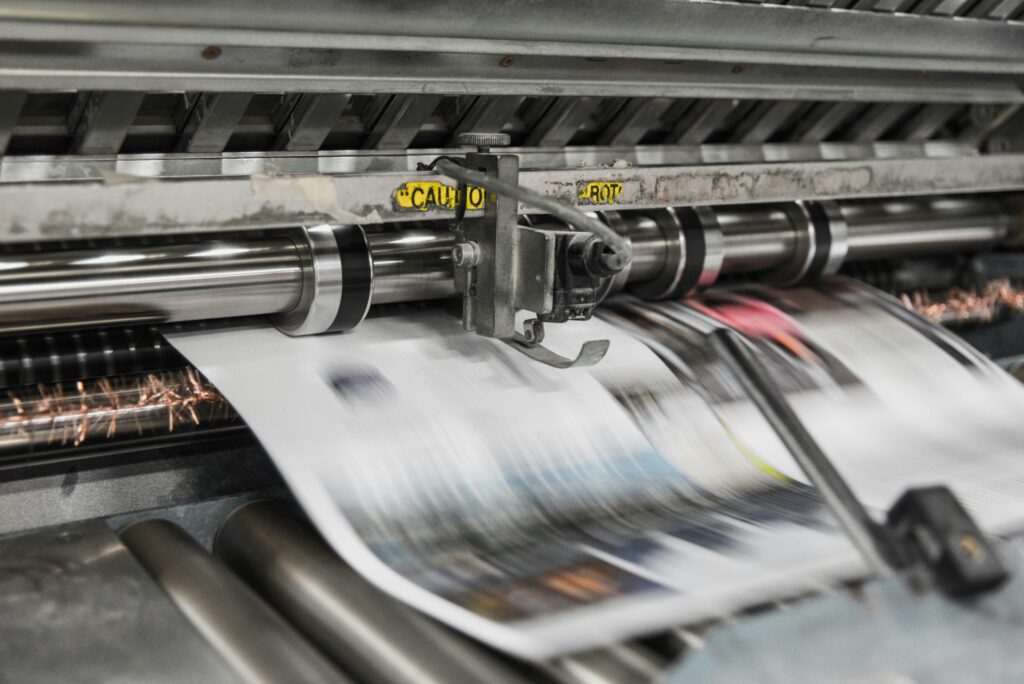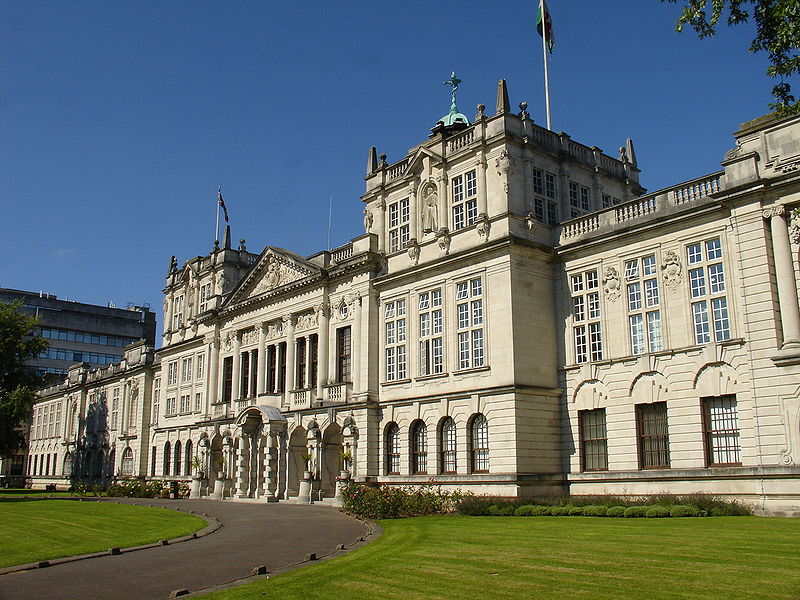What now for journalism in Wales after the closure of The National and rising costs? David Nicholson takes a look at the challenges facing the industry.
The longstanding crisis in the Welsh media continues to worsen after Newsquest closed down The National, barely 18 months after it started.
The National as a newspaper lasted eight months, but the venture continued as a website until finally ceasing publication on 31 August 2022.
Rival Welsh newspaper publisher, Reach, is also beset with trouble as NUJ members have started strike action after being offered a three percent pay rise. This follows 10 years of wage stagnation, despite the company regularly paying out share dividends and bonuses for senior managers.
With the price of newsprint rising this year the industry faces further cost increases, coupled with increased energy costs.
The newspaper giants have tried to defray some of that with journalists working from home, but without compensatory payments to offset their rising home energy bills.
These cost rises could also see a cull of some Welsh-language magazines as they seek renewal in the coming months of their Books Council of Wales’ (BCW) grants.
The NUJ has written to Media Minister Dawn Bowden about the BCW decision to halve the £200,000 annual grant it pays Welsh-language news site Golwg 360, while deciding to use the balance to fund Newsquest’s latest venture, Corgi. Our worry is that taking £100,000 per year from Golwg to give to Newsquest will reduce the service Golwg provides.
It is also an inexplicable decision to use public money to subsidise a profitable media giant. Let us not forget the £245,000 of public money the Welsh Government gave Newsquest for its centralised production site in Newport, which ended in failure when it closed the venture.
When the Covid-19 pandemic struck, the NUJ developed a national news recovery plan in response to that crisis. The recovery plan for Wales was road-tested at an online town-hall style meeting of our members and external experts a few weeks before Christmas 2020 to discuss solutions to the failing industry.
Perhaps public interest journalism should be viewed as a public service, as essential as bin collections or running water – something a community needs.
The town hall meeting was joined by actor and activist Michael Sheen who grew up in Port Talbot in the 1970s, where there were five local newspapers with over 20 reporters. Not one of those papers has survived.
The NUJ then met with Dawn Bowden and persuaded the minister to set-up a working party including key industry players, Welsh Government officials, the NUJ, the Independent Community News Network, university journalism providers and with interested parties such as the Institute of Welsh Affairs included.
Syniadau uchelgeisiol, awdurdodol a mentrus.
Ymunwch â ni i gyfrannu at wneud Cymru gwell.
The union told the working party that its media recovery plan was a detailed list of measures to improve the industry in Wales, but made it clear that in the interests of getting agreement to positive proposals the NUJ would not insist its blueprint had to be followed.
We wanted to build a consensus to increase the chances that the Welsh Government would back any recommendations made.
Included in the union’s plan were proposals for a journalism foundation, which would be independent of the Welsh Government to knit together the various strands of public funding that already go into the industry, to invest in local news and innovative projects.
At the moment, public money for journalism in Wales is used in a haphazard way and applied by bodies like the Books Council of Wales without specialist knowledge of the industry.
The foundation would oversee training and support for Welsh journalism in a more strategic way.
The NUJ recovery plan wants to use apprenticeship schemes and the further education sector to expand entry into journalism from a wider base than the higher education degree and masters model. This is key to increase the diversity of journalists employed in Wales and ensure that they are more representative of the communities they report on.
There are other ideas that the NUJ believe could be a solution in Wales. One was from Michael Sheen who said: “I want to support, celebrate, expand and connect local networks in a more powerful way and possibly set up a pan-Wales entity which grassroots journalism can feed in to.”
Perhaps public interest journalism should be viewed as a public service, as essential as bin collections or running water – something a community needs.
The BBC local democracy reporter scheme reports on local councils with the stories, then gives them to the media industry at no charge.
This could be used as a model for Wales with public money used to finance local reporters in Wales in areas where there is not a local newspaper. All the stories produced could be placed on a centralised website and freely provided to the industry and for local communities to tap into for news.
After the years of endless discussion about the ills of the media industry in Wales and its continuing decline, the NUJ hopes the working party will develop much-needed solutions.
All articles published on the welsh agenda are subject to IWA’s disclaimer.





